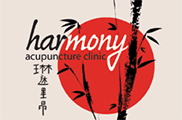Acupuncture is used to treat a wide variety of conditions. The World Health Organisation has an approved list of conditions which respond well to Acupuncture & these include:
What can acupuncture treat?
FAQs
Central to Traditional Chinese Medicine (TCM) is the vital energy known as Qi which circulates around our bodies through channels called meridians. When this Qi is blocked or depleted, then illness and imbalance occurs. By inserting fine needles at specifically selected acupuncture points along the meridians, the flow of energy can be corrected and balance restored.
The aim of TCM is to balance and harmonise the body as health is not seen as simply the absence of illness but feeling and looking well. Treating each client as an individual is one of the core philosophies of acupuncture – each diagnosis and subsequent treatment is designed specifically for each client.
The practitioner takes a detailed medical history incorporating lifestyle, stress levels, sleep patterns and such factors as emotional and mental wellbeing. Tongue and pulse diagnosis completes the assessment and a treatment plan is then devised. Chinese herbal medicines may also be recommended to assist with recovery.
Acupuncture is a completely safe procedure. Sterile, disposable needles are used in all treatments and disposed of immediately after use. Acupuncture has far-reaching effects which provide a very effective form of preventative as well as curative medicine. It is suitable for everyone, both young and old.
Acupuncture points will be selected according to the presenting pattern and TCM diagnosis. Fine, sterile, disposable needles are gently inserted into various points around the body and are generally left in place for 20 minutes, depending on the required treatment. Clients report various sensations including dull aches or tingling sensations which means the treatment is taking effect.
Most people also experience a feeling of deep relaxation and well-being. The treatment may also include Moxa, cupping or heat therapy to enhance the effects of the acupuncture.
The initial consultation and treatment generally takes one hour and subsequent treatments can take anything from 20 – 50 minutes depending on the condition being treated.
The number of treatments will vary depending on the condition being treated. Some acute conditions may only require one or two treatments. Chronic conditions generally require a course of 6 to 10 treatments over a period of weeks.
Treatments to boost immunity and maintain optimum health are required only occasionally. The rate of recovery can vary and the earlier a condition is treated the better.
Food Intolerance Testing

Many medical conditions – for example, irritable bowel, asthma, eczema, arthritis, sinusitis, migraine – are in fact nothing more than different manifestations of the same phenomenon – food intolerance
We offer the internationally recognised Fitzwilliam Food Test to help our patients to take control of their health.
This food intolerance test is a laboratory based test. Laboratory testing is the only reliable/scientific way to test for food intolerance. A great advantage of this test is that it only requires a few pinprick drops of blood to do the analysis.
This test is able to grade the degree of intolerance to the particular foods. People who have food intolerance issues generally have two or three primary foods causing all of their problems, along with a small number of secondary foods.
Two types of food test are available:
- 93 Food Test
- 200 Food Test
For more information see: Fitzwilliam Food Test.

